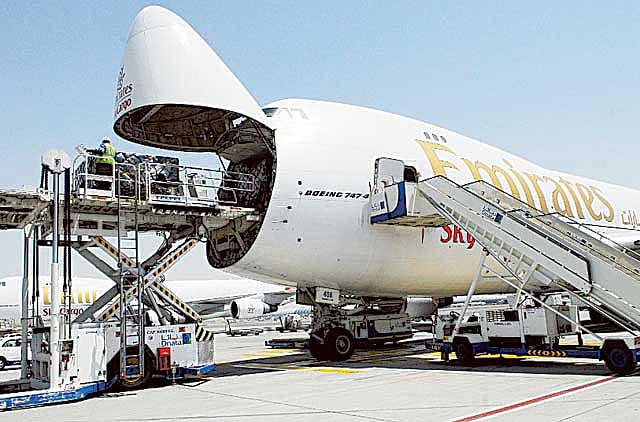Cargo will remain significant to airlines next year
Air cargo has become crucial to airlines as passenger traffic remains subdued

Also In This Package
Pictures: The Link now lifted at iconic One Za'abeel
European tourism's leanest season due to pandemic
Photos: Apple to open Marina Bay Sands store
Meet the Vietnamese billionaire helping COVID-hit world
COVID-19: Airlines invent wild ways to make money
Japan's tuna market hit hard by coronavirus pandemic
Dubai: Demand for air cargo was more robust than air travel in July, the International Air Transport Association said in a webinar on Wednesday.
Air cargo traffic volume, expressed in terms of tonne km flown, was down only 13.5 per cent year over year in July, compared to a 79.8 per cent year-over-year drop in global passenger traffic in the same month.
Also Read
Pictures: Brazil's newest and largest bank noteFirst residents have moved into Deira’s landmark developmentGulf Related opens SAR-1 billion Antara residential development in Diriyah in RiyadhJumeirah Living Marina Gate serviced residence opens in Dubai Marina All the cool, fun activities you’ve missed in the UAE in the last 6 months“Cargo business is becoming more important, because it is providing a partial offset to the collapse in passenger revenues,” said Brian Pearce, IATA Chief Economist.
“We think for the next year or so, it’s likely to be much more significant – unfortunately, not significant enough to offset the continued weakness,” he added.
Challenges
Cargo industry has also been suffering from a significant number of challenges.
As the world has gone into lockdown at different degrees of severity, it has become difficult to get qualified staff to the airport to help offload the cargo to process it through the facility.
“Because cargo is very precious. And it needs to be handled in such a critical manner. It also means that certain training validity requirements which would otherwise have expired,” said Glyn Hughes, IATA’s Global Head of Cargo.
There have also been challenges in addressing closed airspace, closed airports, and crew restrictions, as countries have implemented quarantine procedures and restrictions on people returning to a country, he added.
Capacity has continued to be the “biggest” challenge, Hughes said, despite the industry’s “innovative” response to the problem. Airlines have begun removing seats from passenger aircraft to carry greater cargo volumes, while installing specific and unique tracking systems that the cargo can be safely secured to.
About 2300 passenger aircraft have been dedicated for cargo-only operations around the world, according to data compiled by IATA.
Transport of COVID vaccines
The world will require nearly 8 billion vaccine doses to immunize people against the disease. This will require more than 8,000 aircraft, assuming “that there is just a single dose,” said Hughes.
Apart from moving these critical commodities around the planet, the aviation industry has to also ensure the vaccine is not exposed to higher temperatures.
“A vaccine is one of the more sensitive cargoes that can actually be transported. And if … (it)is a conventional vaccine, then it would need to be transported in a temperature range of between plus two, plus eight degrees celsius,” said Hughes.
“When you add the scale of the distribution to the magnitude of the challenge of the need for those facilities, you can understand where the industry needs to start preparing now to get on with governments in the manufacturing industry as well,” he added.
IATA launches online platform
IATA also launched an online platform called ‘IATA ONE Source,’ which helps the air cargo industry match shipping needs with the availability of infrastructure capabilities and certifications of service providers across the value chain. The platform lists the latest operational information on airlines, airports, cargo handling facilities, freight forwarders, ground handlers, shippers, and trucking companies. “With over 3,500 differently sized cargo handling facilities worldwide, the industry until now has lacked visibility on the capacities and services these facilities can offer. The need for greater transparency is even more critical in the current context,” said Hughes.
Network Links
GN StoreDownload our app
© Al Nisr Publishing LLC 2026. All rights reserved.